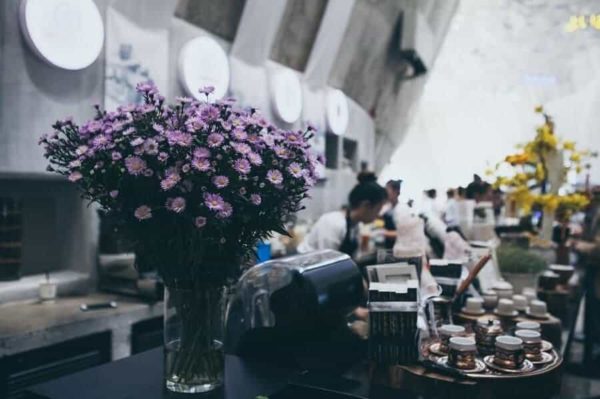Losing a loved one is an extremely difficult moment in one’s life, if not the most challenging one. Often, there is not just grief and an overwhelming rush of emotions to deal with, there are also a multitude of things that need to be taken care of. Funeral arrangements need to be made and that includes the wake.
You may be wondering about the wake. One question that often comes to mind is “What is a wake?”[i] In simple terms, a wake is a gathering of people either before or after a funeral. It is a time for contemplation and sharing memories of the life of the deceased with other mourners.
The term “wake” may seem an unusual one for a funeral and you may be wondering, why is it called a wake?[ii] The term “wake” refers to the ancient tradition of keeping vigil or watching over the body of the deceased from the time of death until the funeral. During this time, those in attendance would offer prayers and, as it continued during the day and night, the phrase “wake” is very appropriate.
In more modern times, a wake can be held before the funeral but, in most cases, it is now more common to be held after the funeral.
How to organise a wake
Making funeral arrangements can be quite overwhelming and organising the wake may be the last thing on your mind. There are no hard or fast rules to hosting a wake and what you choose to do may come down to your own traditions or cultural background. The entire process may seem overwhelming, but it doesn’t need to be. Try following a few simple guidelines:
- Create a guest list – This may be the hardest part of organising a wake as you need to know how many to cater for at a funeral. Decide whether you want a wake that is ‘invitation only’ or if you will open the venue to all who want to come and pay their respects.
- Choose a venue – Once you know how many people will be attending the wake, the next thing you need to decide is where to hold a wake. If you really aren’t sure, you can ask the funeral director for advice. Other suitable venues can include church halls, sporting or social clubs, restaurants or hotels. It is also fine to organise a wake at the family home of the deceased or at the home of a friend or family member. In private homes you can also decide to have the wake outdoors as long as the weather is warm. If you do choose this option, make sure you have a backup plan if the weather changes.
- Catering[iii]– Refreshments are usually served at a wake, but that doesn’t mean you must serve food and beverages if you really don’t want to. However, keep in mind that some people may have travelled a considerable distance to attend the funeral and with the emotional upheaval many face, it is not uncommon for people to forget to eat. Having food and drinks available to guests may make the day easier for all concerned, including yourself.
The guest list will help you consider how many to cater for at a funeral and the wake that follows. Once you know the numbers, deciding on catering will be easier. You can decide on hiring a catering service. This is a great option as the caterer will take care of all the food and beverages as well as organising waiters if necessary. However, an economical option is to ask closer family and friends to bring food. Most in your inner circle will be more than happy to contribute so don’t be shy in asking for help with food, service and helping to clear up afterward.
- Alcohol – The decision to serve or not serve alcohol at a wake is a difficult one. Many of those grieving may turn to alcohol in this difficult time and some of the guests may go overboard if free alcohol is offered. Keep in mind that funerals and wakes can be deeply tied with religion and alcohol will not be in keeping with the spiritual side of this occasion.
- Decorations – There is no need to go overboard when it comes to decorations for a wake. A photograph of the deceased is often enough but you can also have a few vases of flowers on tables or even a few candles.
General etiquette at a wake
Like every social gathering, a wake also comes with some unspoken rules for those in attendance. The wake is not as sombre as the funeral service and although it is an opportunity to release some of the tension and emotions that are inevitable with the loss of a loved one, it is important to be mindful of those at the wake.
Read the room – what is acceptable?
In some cultures, it is perfectly normal for guests at a wake to regale others by sharing memories of humorous adventures they shared with the deceased. In other cultures, the wake may be a more subdued occasion so it is important to know what behaviour is acceptable and which is not. If you aren’t sure, take your cue from closer family and friends.
What to say to the family
In general, the rules are quite simple. When you arrive, your first move should be to greet the family of the deceased and offer your condolences. If they are friends, offer to be there for them in the days following the funeral and the wake. Keep your greeting short. The bereaved need to talk to all their guests at a time when they really don’t feel like being overly social. A simple handshake or hug with a few words of support is often enough. You don’t need to stay long if you find wakes difficult but it will mean a lot to the family of the deceased to see you there. If you can’t make it for personal or professional reasons, try to send something like flowers or a hamper to show you care.
What to wear
An important decision for guests is deciding what to wear to a wake. In most cultures, black attire is the norm but it is not always necessary. What you wear to a funeral and the wake says a lot about you and you want to appear respectful and considerate. While you don’t necessarily need to dress in black from top to toe, keep your colour choices to darker shades such as navy blue, browns or grey. For men, dark trousers and a dark shirt are fine but if you choose a white shirt, it looks more respectful if you cover with a dark jacket. Ladies can dress in a similar fashion with pants or a skirt, or they can opt for a dark coloured dress.
What happens if the family don’t want a wake?
Everyone grieves differently and there is no right way or wrong way to get through the harrowing days following the death of a loved one. Although most people will organise a wake, others may not be keen on the idea. This is a very personal decision and not one the bereaved will make lightly. You don’t need to have a wake after a funeral if you really don’t want to and there are alternatives you can consider.
- Have a short wake before the funeral – This can just include immediate family or close friends and all you need to serve is a few platters of cold cuts or sandwiches with tea and coffee.
- Immediate family dinner at a restaurant – Essentially, this is a wake but if you really want to keep it low key, there is nothing wrong with keeping it to immediate family.
- Scatter flowers– Gather those closest to the deceased and go to their favourite place. It could be by a river, a forest or any place they loved. Let each person toss flowers into the water in honour of the deceased.
- Arrange small gifts to remember your loved one – What better way to remember a lost loved one than to carry them with you all the time? If you want to offer something deeply personal to family members, you can have jewellery made to honour your loved one. From ashes rings to lockets encapsulating a lock of hair – there are plenty of choices for memorial jewellery on the market. For those outside of the immediate family circle, you could put together photo albums, or get creative and give them seeds for the deceased’s favourite flower that they can plant in their own gardens.
The most important thing to remember when organising a wake is to do what works for you and your family. It can be a grand affair or a very subdued one. It’s also important to be kind to yourself during this difficult time and you are not failing anyone if you ask for help. Family and friends usually come together during these difficult times and most will be more than happy to help you organise the funeral and the wake.
Give your dearly departed the send off they deserve but don’t forget to look after yourself. Reach out to friends for company or a shoulder to cry on and take the time to grieve in any way that helps you.
Sources
[i] https://www.funeralguide.co.uk/help-resources/arranging-a-funeral/funeral-guides/how-to-organise-a-wake
[ii] https://www.legacy.com/advice/what-is-a-wake/
[iii] https://www.funeralguide.co.uk/help-resources/arranging-a-funeral/planning-the-service/funeral-foods

